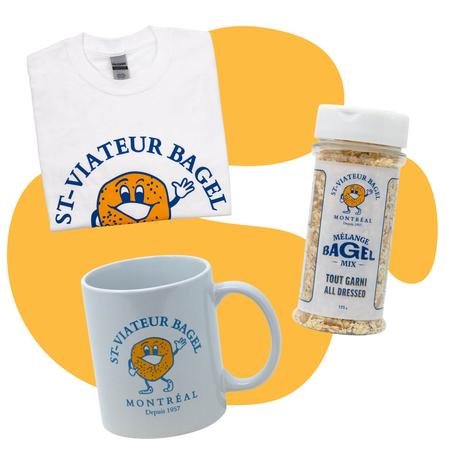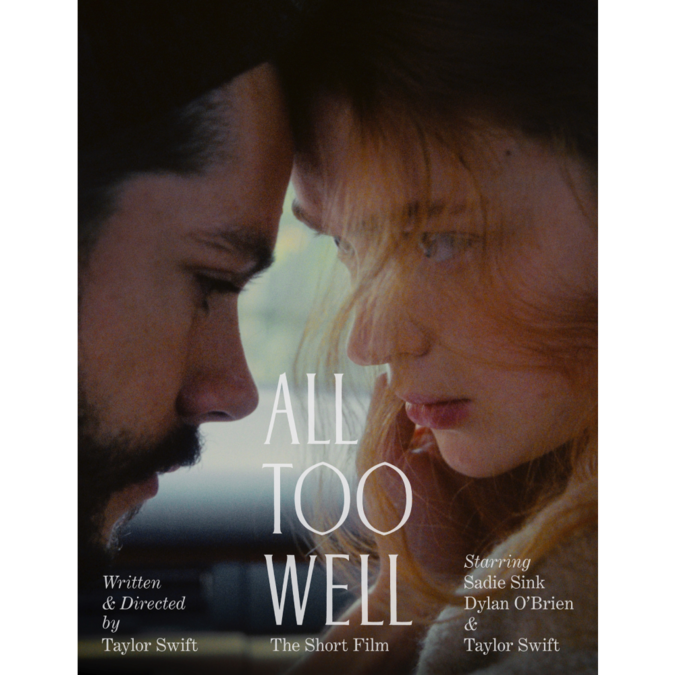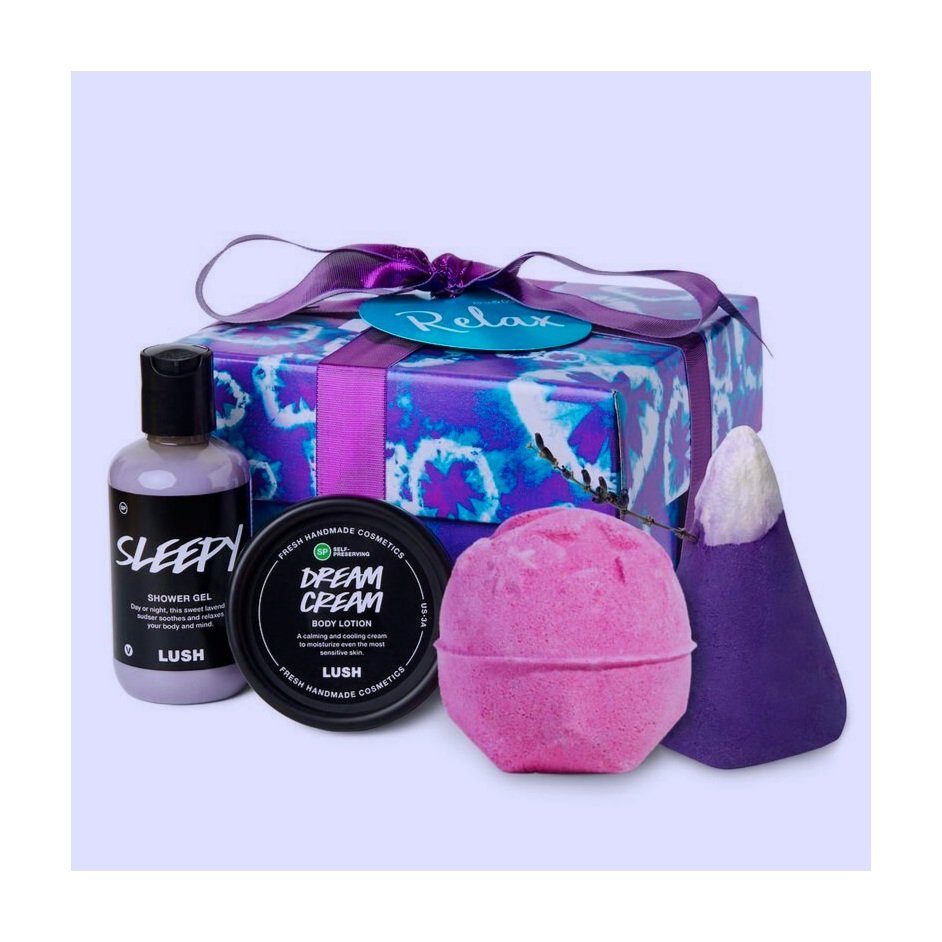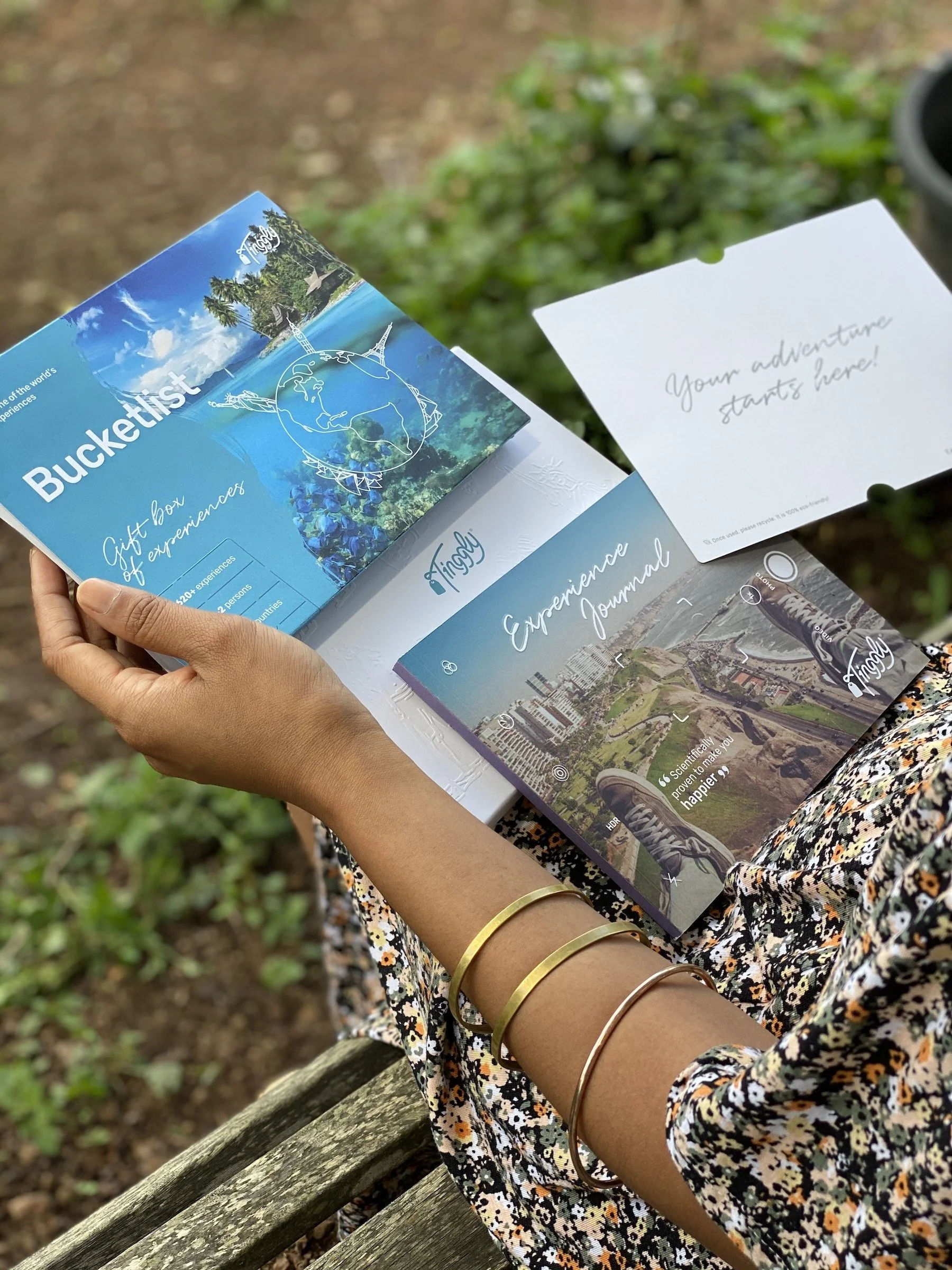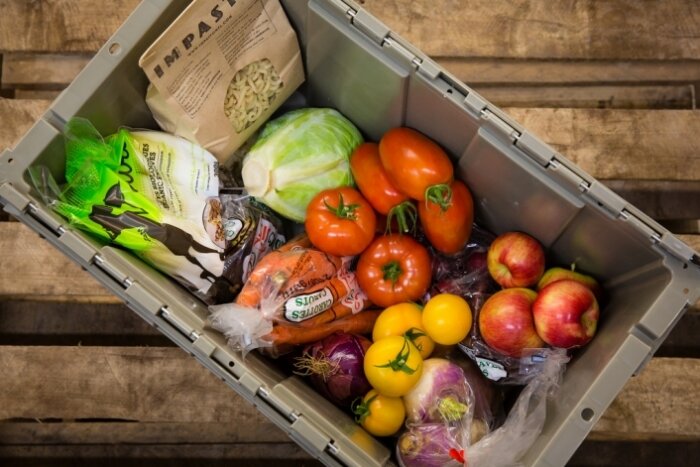Hello!
How are you? How are your family and friends? If you are in school, how are your exams?
I hope you’re enjoying your December and getting excited for the holiday break ahead.
Personally, I am well! Two weekends ago, I finally celebrated my graduation from my Bachelor’s degree, and after spending a couple of wonderful days in Montreal with my loved ones, I travelled back to spend the month of December at home with my parents. I am getting in some much-needed family time (and dog time). It’s lovely!
Being home this early before Christmas has also given me the chance to actually plan my holiday shopping ahead of time for once (possibly the first time ever?)! As part of that, I will be boycotting Amazon. During the holidays, we know that consumption drastically increases, and due to its convenience, a lot of that business gets directed toward the multinational online giant. This boom is very beneficial for Amazon, but not so much for its workers, who are the ones who make that 2-day shipping guarantee a reality.
Just read this Guardian article from February 2020, for example. Of course this is an American context, but follow the thread of our geographical and cultural proximity, as well as similar pandemic-related shifts in consumption, and you’ll conclude that the Canadian reality was, and is, not all that different. Valuing workers is just not in Amazon’s business strategy.
Shopping from Amazon is convenient, and many people aren’t able avoid it due to their economic or geographic situation, which is fine. But if you can, I strongly urge you to try.
And obviously, this is Ethigirl we’re talking about, so I’m not going to tell you to stop something without giving you an alternative! As such, I wanted to take the time to share with you some ideas for conscious, small-business oriented, thoughtful, sustainable, and/or ethical gifts you can give in 2021. I hope you like them, and that they give you some inspiration as you go about your shopping! And please remember to gift responsibly — aka, avoid overconsumption as much as you can!
food & drink
Specialty Food Items from Brunette (or another local grocery/online shop)
What it is: Brunette is an online, Montreal-based gourmet food retailer, which offers gifts, goods, and merchandise from the city’s top chefs, restaurants, and grocers. Montreal is such a major food city, with so many iconic spots and celebrities, so a business like this is incredibly cool to have. I ordered a box of their goods for my parents last year, and it was one of their favourite Christmas gifts! If your family is into food, try this site out. Or, pop into your local boutique grocery store and see what treasures you can find! Many of them also have websites nowadays.
What I recommend: From Brunette, go for ANYTHING from Stefano Faita, or one of their cool gift bundles.
Spices from Diaspora Co.
What it is: Diaspora Co. was founded in 2017 by Sana Javeri Kadri, a third-generation Mumbai native, with the goal of creating accessible pathways to higher-quality, equitable spices and to build long-term partnerships with Indian farmers. Since its inception, the company has grown tremendously, and offers a great array of delicious products. The website has a dedicated page just for gift ideas, so take a look!
What I recommend: Check out The Trio, which allows you to choose three spices as a "starter pack” for your recipient, or The Pantry Refresh, which is comprised of six of Diaspora’s most popular spices.
NOTE: Keep in mind that if you order from Diaspora, at this point they might not be able to guarantee delivery by December 25th.
Fair Trade Food - Coffee, Tea, Chocolate and More from Rosette Fair Trade
What it is: If you’ve been around awhile, you’ll remember that in my 2019 holiday gift guide, I recommended Rosette Fair Trade too! Rosette offers an abundance of fair trade goods in an easily-navigable site, and acts as a one-stop-shop for all things ethical! It also stocks Oxfam Fair Trade products, which provides Canadians access to a whole host of products that we can’t normally get here. In 2019, founder Lia Walsh VERY kindly gifted whole box of snacks to try, and everything was so delicious!
What I recommend: Another thing which I love about Rosette Fair Trade is that it sells Palestinian-made products! That’s why this year, I’m recommending the Zatoun gift bundle of Palestinian products, which comes with fair trade olive oil, soap, and za’atar (a Palestinian herb mix). This purchase directly supports Palestinian olive farmers, keeping a traditional practice alive while also economically assisting surrounding communities.
Zero-Waste Gin from Loop
What it is: Loop is a Montreal company that is seeking to solve food waste by using it to create innovative products (thus, closing the Loop!). They started out by making cold-pressed juices, and quickly expanded to a variety of other items, including gin!
What I recommend: The Lime Ginger Gin I’ve linked is made from potato chip waste which Loop rescues from a nearby factory.
Your recipient will be happy to have a delicious and sustainable gift with a very cool party story. According to Loop’s website, you can currently buy the gin at the SAQ (Quebec), LCBO (Ontario), ANBL (New Brunswick), and Highlander Wine & Spirits (Calgary).
art & music
Vintage Décor, Artwork, Ornaments, Candles and More from Etsy
What it is: One of my favorite places to do holiday shopping so far this year has been Etsy, a small business-oriented online marketplace. Man, it literally has everything! I love seeing the creativity that so many artists and small business owners have. For me, even when I’m not sure what I want to get someone, once I browse Etsy I pretty quickly come up with an idea! I love being able to support a real person through every purchase I make.
What I recommend: Although I could suggest things forever, here are a few items that have recently caught my eye: this Sailboat Jewelry Holder, this Cereal-Scented Candle, this absolutely gorgeous Suncatcher, and these Flower Beaded Earrings. But seriously, go take a look yourself! Etsy has a really extensive gift guide so you don’t get overwhelmed, and so many things are reasonably-priced and very high quality.
Merch from Their Favorite Artist, Movie/Show, Charity, or Café
What it is: This is such a thoughtful one! For every one of your recipient’s interests, there is sure to be a merchandise shop somewhere — either on the website of the thing, or on somewhere like Etsy or Redbubble. If your recipient loves cafes, surely their go-to spot sells mugs, bags of coffee beans, or tote bags. A favorite musician will certainly have a t-shirt or pin for sale on their website. Get creative, and you’re sure to find something they’ll treasure forever!
What I recommend: Personally, I’ve got my eye on this All Too Well poster from Taylor Swift’s website.
Custom Records, Cassettes, or Coasters
What it is: If your recipient is really into music, we can go deeper down this rabbit hole! If they own a record player or have an old cassette player, you can make them a custom record or cassette mixtape, and even choose what goes on the outside!
What I recommend: For Christmas last year, I opted for the mixtape for my boyfriend — this one from Etsy. I was seriously so happy with how it turned out, and the experience of creating the playlist and then eventually listening to it together was so sweet! For the custom record, here’s one option. Another decorative idea is to do custom record coasters! You can pick the album(s) you like, and then your lucky recipient has all of their favorite music as decorations.
self-care
Anything from Lush
What it is: I have been a lifetime customer of Lush, and for every good reason. They are ethical and sustainable by-the-book on every cause, their products are all natural, their employees are treated fairly, they are serious about animal testing, they are vocal about human rights and activism, and most recently, they’ve decided to break up with social media!
The latter thing is something I’m incredibly excited to follow. While I know as a blogger how powerful social media can be, I also know how detrimental it is and I’m terrified of its long-term impacts. Companies like Facebook are also extraordinarily unethical, and are only getting worse, so it is time to take a stand. I couldn’t be more supportive of Lush taking a lead on that.
What I recommend: Lush has a pretty extensive gift selection, all of which look absolutely wonderful! But if you are looking for individual products, I have a few suggestions too. If you’ve got curly hair, check out the Power conditioner and the Revive hair cream. Charity Pot is a body cream for which Lush donates 100% of the profits to grassroots charities. And Angels on Bare Skin is a wonderfully gentle face and body scrub that smells amazing!
A Nice Compost Bin
What it is: Alright, some of you might be laughing about this one (which is totally fair honestly), but think about my reader base for a second! If your recipient is eco-conscious, help make composting a little less disgusting for them. Let’s be realistic — most of us definitely leave our compost bins under our sink for WAY too long and forget to take them out. The whole thing is just not fun, but it’s worth it for the planet.
What I recommend: If you’re like me, you just bought the cheapest one you could find. But this one from OXO is a little higher-end, a little less unsightly, and it’s even dishwasher safe! Making sustainable household chores more palatable is something I’d definitely call self-care.
last-minute, harder-to-box, but still good
A Subscription to Book of the Month
Subscription boxes and services have become something of a go-to for a lot of people, but if your recipient loves reading, or wants to love reading but never knows what to pick, this is a great option! How it works is you pick the length of your subscription (3 months, 6 months, etcetera…) and then each month, the company lets you choose one book from five great new releases. The service is surprisingly affordable, and very exciting as a recipient (it’s fun to have something to look forward to every month, and it’s like a gift that keeps on giving)!
A Parks Pass
Does your recipient like nature? If they do, buy them a Discovery Pass from Parks Canada! It will let them get unlimited admission to more than 80 locations. With the pandemic, a lot of us are seeing more of the places we live in, and this is a cool way to help your family and friends do it without paying anything.
A Travel Gift Card
Whenever your recipient decides they’re ready to get on a plane again (especially if it’s to come see you), help them make it easier with a gift card from FlightGift! It’s a service that allows you to purchase a gift card that the recipient can use toward virtually any airline and any destination. I gifted one of these to a friend earlier this year and they were incredibly happy! If you have been separated from a loved one during the pandemic, this thoughtful idea could help close the gap (if/when it’s safe).
A Donation in Their Name
If there’s an organization whose work they are passionate about, this might be a good option! Some people truly mean it when they say they don’t want anything, and this is a good way to ensure they know you are still thinking of them. This thoughtful option could also go very well paired with another small item, if you wished.
A Tinggly Gift Box
Here is an opportunity to consciously give the gift of an experience! Tinggly is a company which allows you to gift “experience gift boxes". What does that look like? You choose the category (think: Bucket List, Taste the World, and so on), and then Tinggly sends a personalized package that allows your recipient to select the experience from an extensive list and redeem it next time they are travelling. Examples of experiences include cooking classes, spa treatments, or even bungee jumping. It’s a really cool concept that I think goes a step beyond your traditional gift card and into the realm of something that will encourage your recipient to try something new and amazing!
conclusion
Well, there you are! A whole host of new gift ideas that I hope will make it easier for you to get started (or get finished, depending what stage of shopping you’re at). I hope you’ll remember to support local, shop small, and consume consciously this holiday season, whatever that looks like for you and your unique situation.
What are you planning on gifting this year that you’re excited about? What did I miss? Let me know in the comments — I’d love to hear it (I’m still collecting ideas, after all)! I love you all so much, and thank you for reading!!!
With love and sustainability,
ethigirl

